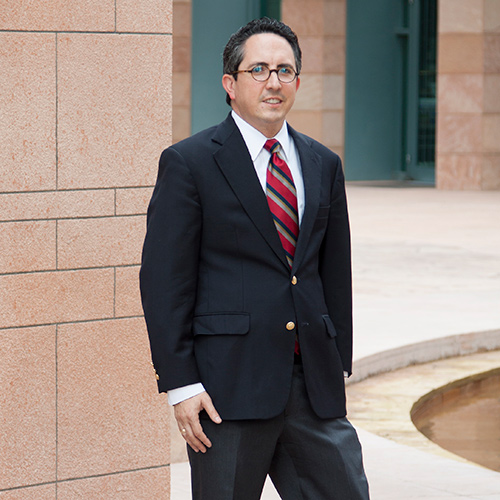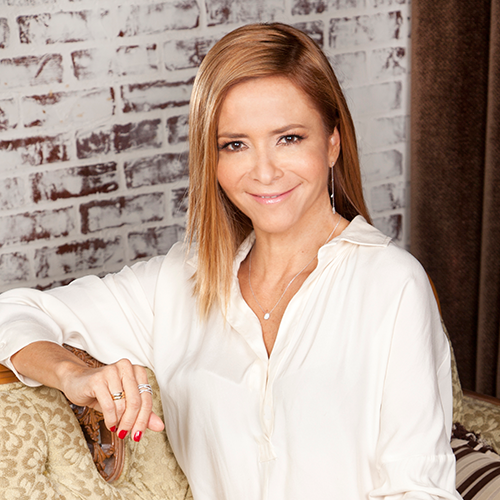Hectic schedules, long hours, constant challenges: welcome to HR, where Lorna Hernandez embraces these consuming offshoots, which are welcome, she says, when you love what you do.
The vice president of human resources for the Latin American division of Japanese global technology company Ricoh began working for the company in Puerto Rico twelve years ago. Hernandez was then offered an opportunity in South Florida with the company’s Latin American headquarters. In 2010, she became the senior manager of HR for Ricoh Latin America, which at the time was a small role with limited functions. The scope was based on the needs of the organization, and just six years ago, Ricoh Latin America was a very different company than it is today.
Feeling a bit unchallenged, Hernandez left Ricoh for a year but was lured back in 2011 when Ricoh made her an offer that excited her—director of human resources for Ricoh Latin America. Two years later, she assumed the leadership role she
holds today.
Hernandez oversees 13 managers in Latin America and a team of several HR managers and staffers at the company headquarters. The HR initiatives she leads impact over 3,000 full-time employees and 500 contract workers.
The company was—and is—undergoing major changes, and Hernandez’s current mission is to raise the level of HR function, from department to strategic business partner. “I was told HR needed to be more than just an administrative role, and I gladly accepted the challenge,” Hernandez says, adding that she considers herself lucky to have always been surrounded by people who wanted to see her succeed and were willing to invest in her advancement.
“At every step of the way at Ricoh, I could ID another person or professional at a higher level who was willing to develop a genuine connection with me. They saw my potential, my willingness to learn,” she says, crediting a number of mentors for her ability to transition seamlessly into a leadership position.
Hernandez says she also owes much of her drive to a more personal transition. “Becoming a mother gave me the opportunity to clearly define my goals and my focus. I want to make a difference and be a successful leader.”
Hernandez decided to return to Ricoh because the company showed a willingness to alter its strategy to better support her abilities. In 2011, Ricoh enthusiastically committed to investing in HR, financially and strategically. Part of the plan was to simply expose the HR function to strategic planning, and with business growing exponentially in Latin America, it was the perfect storm.
“The creation of the position I hold sent a very critical message to the organization as a whole: human resources is an important and essential part of the company’s future,” Hernandez says.
Hernandez feels empowered in her role, but that doesn’t mean it is without challenges. One of her biggest challenges is being based in South Florida while needing to develop relationships with those in the field, spread out over 13 different Latin American countries.
“I came from working in the field, so I understand that those who are in sales and marketing are constantly putting out fires. That’s stressful, and I want to support them in their work. I’m constantly checking in, asking, and thinking about how I can better support and help them accomplish their business goals in a more profitable and efficient way,” Hernandez says.
In order to support her international team members, the VP says a true understanding of the company’s vision and the strategic directions of its leaders is necessary. Helping the field organization align themselves with the company’s direction, making sure they have the necessary tools to succeed, is another of her primary responsibilities. This means placing a great deal of emphasis on communication, technology, and frequent travel.
One of Hernandez’s goals is to create centers of excellence in Latin America with trained HR professionals who are business-savvy experts. Currently, HR is actively recruiting people who are more specialized and adept at operating as strategic business partners.
HR leaders of the future must have business knowledge, Hernandez says, but they must also understand how the business produces its services from the ground up. These select individuals should be able to seamlessly transition between discussing traditional HR functions and talking about the business itself with the senior leadership team. It’s a tall order, but one the VP is confident HR can deliver on.
“This is an exciting time for HR, and I’m happy to be a part of it,” Hernandez says. “For a long time this field was seen as administrative, but we’re going to show them what we’re capable of.”

